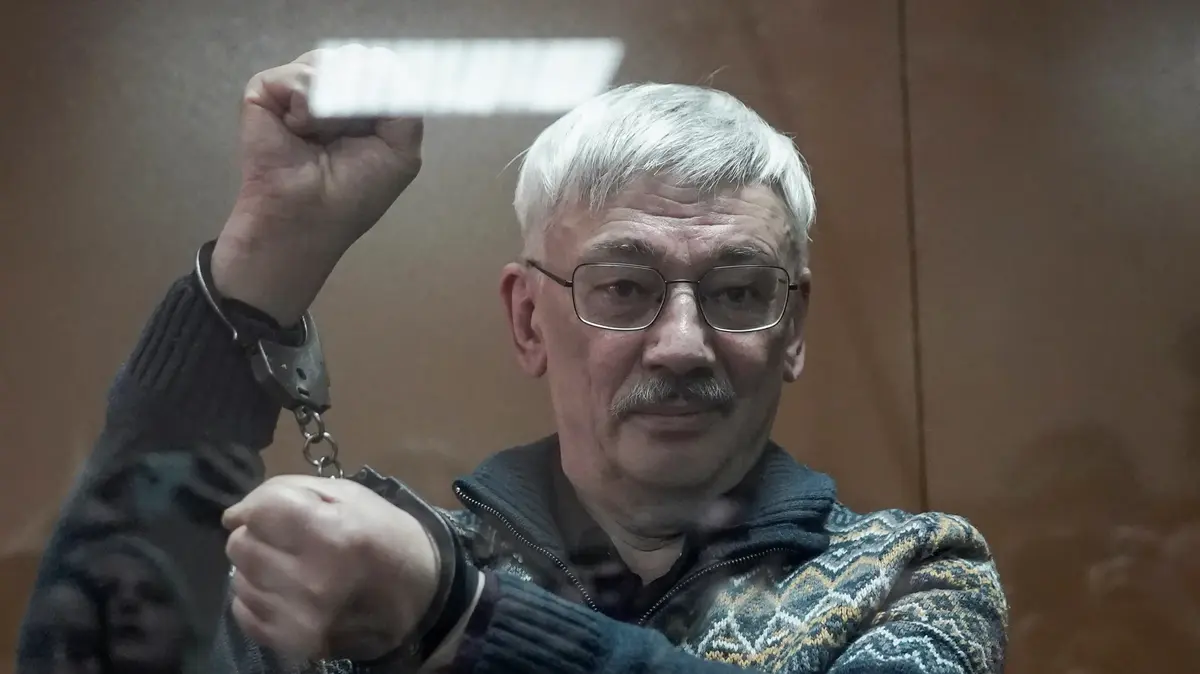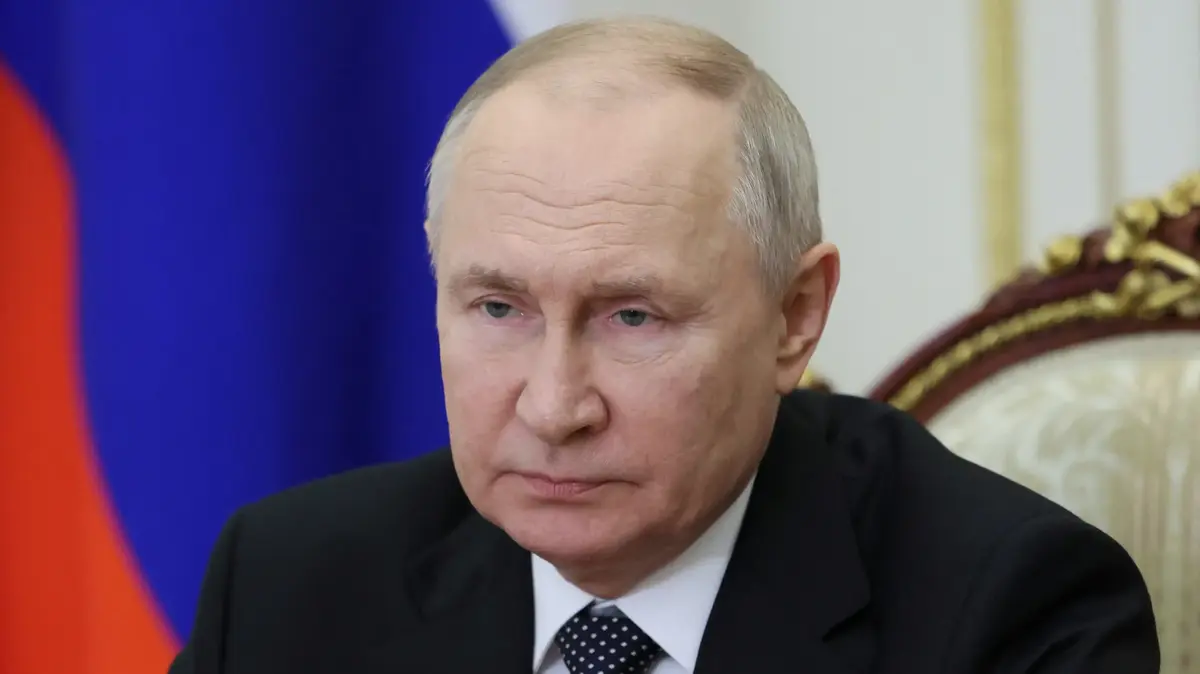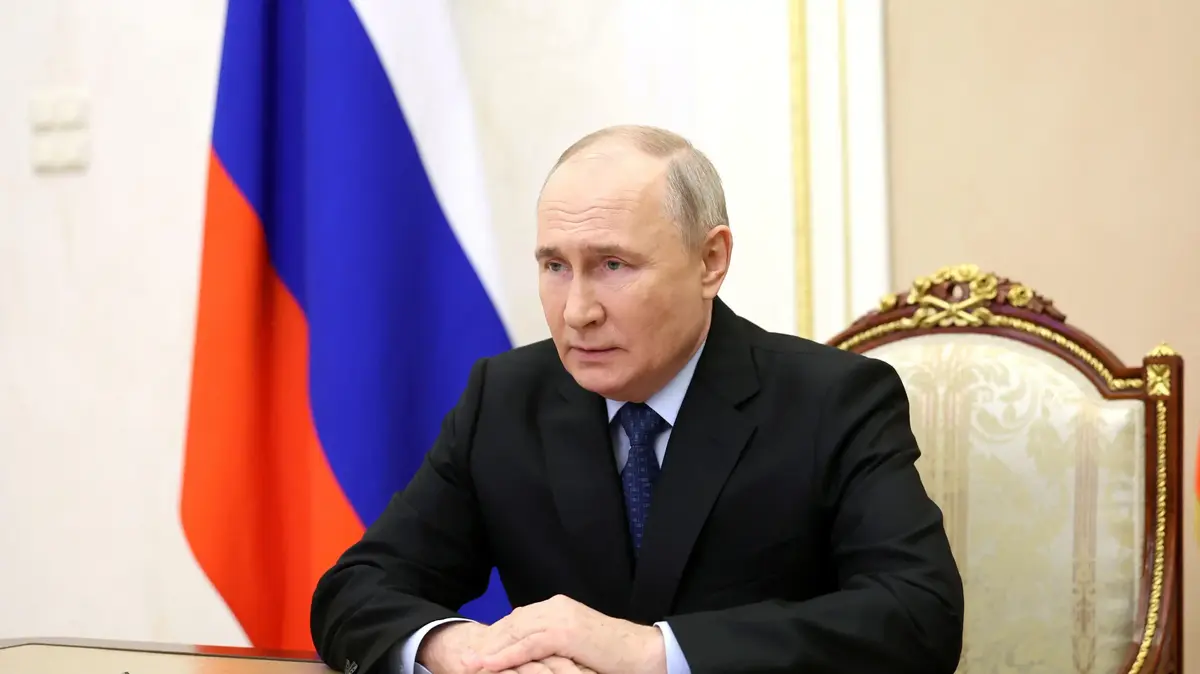At 9:50 p.m. on March 5, exactly 70 years ago, Josef Stalin
died of a stroke,
as had happened to his former boss Lenin almost three decades earlier and to Franklin Roosevelt at the end of World War II.
Radio Moscow
first broadcast Tchaikovsky's Pathetic Symphony (and shortly after, Bach's Suite in D) and an announcer read this news: “Josef Stalin's heart has stopped beating
in his Kremlin apartment.
The death of the marshal constitutes an irreparable loss for the workers of the Soviet Union and the whole world."
The commotion spread throughout the world, despite the hermetic management behind the Iron Curtain, and uncertainty also spread in the midst of the
Cold War
that was going on at that time (1953 also marked a sad "record" of
nuclear tests
of part of the superpowers).
For the Soviet Union, that first large-scale experiment of "Bolshevism" established since 1917, was the end of an era, as well as for its wide area of influence.
But in reality, the real end came much later and is still fresh for our generation, with the
collapse of the Berlin Wall
in November 1989 and the collapse of the so-called "socialist area."
Soviet leader Josef Stalin, in November 1930. Photo: AP
Hundreds of thousands of Soviets, perhaps millions, came to the impressive funeral, in the midst of the icy days of the Moscow winter.
A
ruthless murderer
for all those who suffered it - due to political and social persecutions, due to the famine in Ukraine in the 1930s, due to the massive purges until the end of his "reign" that lasted 29 years - but a "Father ” of the homeland for his leadership and his victory in World War II, died amid the customary secrecy of the Soviets and the battle for power in his inner circle.
A battle that a few years later, during the XX Congress of Communists in 1956, erected Nikita Khrushchev as the new leader and swept away
the "cult of personality
" around Stalin: it also drew the veil on the monstrosity of his crimes. .
Those final days were documented in recent films such as
"The Death of Stalin"
(despite being a satire, it remains faithful to historical data) or the documentary "State Funeral".
And it was also reflected in the documentation declassified in recent years, the work of historians and researchers and the dozens of biographies of Stalin, some of them of profound scientific rigor.
Cinema, vodka and end
Stalin's end was precipitated
after a regular meeting with his team, on February 28, 1953 at the Kuntsevo country house, built during the time of Catherine the Great in the 18th century, in the middle of a birch grove and gardens.
They watched movies, drank vodka and retired very late.
The next day,
Stalin did not come out of his room
, he did not call his assistants or the guards.
No one dared to enter his room until at 10 pm, a butler forced the door and found him lying on the floor.
He had suffered a stroke.
It is the official version.
A statue of the dictator Stalin in his hometown, Georgia.
REUTERS
However, the first bulletin was just released at 6:19 on March 4, with just four words:
"Stalin is seriously ill."
They expanded after a while: “During the night of March 1 to 2, Stalin suffered a brain hemorrhage and lost the use of speech.
He has paralyzed his right arm and his left leg”.
Those news were disseminated by the
Tass agency.
It was the same March 4 when the Central Committee of the Soviet communists - the most powerful body in the country - issued a statement:
"Comrade Stalin has lost consciousness."
"The Central Committee and the Council of Ministers are confident that the party and the Soviet people will know how to show the greatest unity and cohesion in these
difficult days
and redouble their energy for the construction of communism in our country," he continued.
Stalin, born Iosif Visarinovich Yugashvili, was 74 years old – he was born on December 21, 1878 in Gori, Tiflis – and was treated by the Health Commissioner, Dr. Tretyakov.
During that March 4, they released other statements while the official newspaper,
Pravda,
appeared four hours late and reproduced the latest medical report on its front page.
But the details of those parts made the experts doubt.
“It was almost
inconceivable
that a man who had hemorrhaged so profusely could continue to live,” wrote Robert Payne, one of Stalin's biographers.
At this point it is no longer known if Stalin was dead or, as the last part spread, this really happened on the 5th.
merciless struggle for power
What was going on was a
ruthless struggle
for power in that circle made up of Georgy Malenkov (Chairman of the Council of Ministers and Secretary of the CPSU), Marshal Kliment Voroshilov, Commissioner Lavrenti Beria (sinister head of the NKVD secret services), Lazar Kaganovich , Nikolai Bulganin (Minister of Defense), Viacheslav Molotov (responsible for foreign policy) and Khrushchev.
And among the multiple versions about those days, there was no lack of the most conspiratorial, which directly speaks of the
murder of Stalin.
His daughter Svetlana Alliluyeva, who later chose to leave the USSR, wrote: “My father died a terrible and difficult death.
The agony was excruciating.
He was extinguished in everyone's eyes
.
Suddenly, at the last minute, he opened his eyes and looked at the entire audience, a strange, furious look, full of fear of…death, as well as at the unfamiliar faces of the doctors who were leaning over him."
"His gaze fell on everyone present in a fraction of a minute and then, in a
horrifying gesture
that even today I cannot understand, nor can I forget, he raised his left hand, the only one he could move...", he wrote.
In his memoirs, Khrushchev also detailed his version of those days that would ultimately bring him to power for a decade.
He had been summoned to the Kuntsevo residence on the 1st at midnight when his home phone rang: “Here, Comrade Stalin's head guard.
You must report immediately to his country house.
It is urgent!".
He left in his official car, on a night of icy winds and snow.
His wife gave him an overcoat reinforcement.
"You'll need it on this night when not even the dogs come out," she advised him.
“I kissed her without answering her.
Every time Stalin called me, we knew very well that it was possible, very possible,
that he would never come back. »
When they arrived in Kúntsevo, together with the other six members of the Presidium, the fearsome Stalin was not waiting for them, but the head of the Caucasian guards.
He told them that they didn't answer
from Stalin's room
, but that no one dared to open it.
“Molotov was the first to decide: the door had to be forced.
With picks and iron bars, the burly Caucasians began the task.
Long minutes passed before the first hinge came off.
The door was ajar.
They all held their breath.
It seemed that Stalin's presence, Stalin's voice,
would emerge from the silence
.
Nothing," he wrote.
"It was necessary to move on, to force the doors of the rooms. The first gave way easily. The Caucasian man stood rigid, his iron bar in his immobile hands. Lavrenti Beria, the ruthless head of the secret police, pushed him aside and entered the room
. the room
," he added.
Other versions speak of a paranoid Beria at that time, who claimed responsibility for Stalin's death (“comrades, what a marvelous hour, we are free,
the tyrant has finally died”
).
Beria was executed a hundred days later and one of his subordinates complied with the Presidium's order,
shooting him in the forehead
.
One more theory indicates that Beria could have poisoned him, while the most realistic ones mention that he proceeded with a certain parsimony and lack of execution when they discovered the unconscious body of the leader.
Nikita Khrushchev, the Soviet leader, at a summit with US President John Kennedy in 1961
Those delays were fatal, as was the delay in summoning the doctors.
And these, as soon as they arrived - as revealed by the few witnesses -
"they trembled just like us".
Recently interviewed in
Ñ
, Joshua Rubinstein –author of “The Last Days of Stalin” and human rights activist-
disbelieves the poisoning theory:
“It is always possible, but highly unlikely.
First of all, there was a full autopsy and the doctors would have understood that there was more to it than just a simple stroke.
Second, the doctors who carried out the autopsy remained at large, no one arrested them, and some traveled abroad.
If they had known of anything suspicious they would have been pressured;
they wouldn't have been able to travel,
maybe they wouldn't even have been left alive.
"There is no objective reason to believe that he was murdered. He had high blood pressure and there were no medications to control it. He had had strokes, he
would also have had a heart attack
after the war."
He added: “His paranoia made him more vulnerable to what happened.
If the guards had been able to get in they would have found it sooner.
But it's hard to believe that the doctors could have saved him.
He had a very severe stroke,
Western medicine, European doctors, wouldn't have helped much.
Paranoia exposed him a lot to his physical weakness.”
Stalin had
absolute power
but it was also known that in recent months he encountered some challenge, for example to his theses at the 52 congress. From the age of 70 his physical condition declined and his personal doctor Vladimir Vinogradov diagnosed him with acute hypertension.
However, Stalin
refused to continue his treatment,
threw him out and, worse still, included him in the "doctors' plot": it was his last purge, with 40 doctors fired - half of them Jewish - and nine of them executed. .
On February 15, 1953, the head of Stalin's bodyguards also mysteriously disappeared.
The rumor was circulating again that he was preparing a
massive purge
in the style of '37. That was the climate in which he died.
During those funerals, and in the midst of the
terror caused by the atomic tests,
former US ambassador Averell Harriman defined Stalin as "the most sadistic and cruel man I have encountered in my life."
Among the Stalinist panegyrics came that of Ramón Mercader,
Trotsky's murderer
, who from a prison in Mexico expressed: "The world does not know what great man it has lost."
For Dolores Ibárruri "all communists carry Stalin in the sanctuary of the soul."
Symbolizing the voice of so many persecuted poets, Evgeni Evtuchenko would later call: "Double, triple the guard at Stalin's grave, so that he will never be tempted to escape."
Vladimir Putin, admirer and imitator of Stalin.
EFE
When Khrushchev read his famous secret report, denouncing Stalinist repression and the cult of personality,
the demolition of his statues began.
Stalin's corpse was removed from the Kremlin mausoleum in 1961... and it was only recently, under the Putin regime, that
a progressive claim began.
The professor of Contemporary History, Antonio Elorza, wrote that “in Stalin, terror is not an instrument to protect the Revolution, but rather to
affirm his dictatorship.
Everything resides in conserving power, in consolidating it and making it invincible, he had already written about it in 1924 ”.
Simon Sebag Montefiore, another of the main scholars, defined that system, more than the man: “If we define power as the ability to decide over the life of a third party, the Stalinist system as a whole was tremendously powerful, but not only in its peak but in the group of leaders and structures".
"Such a regime is impossible simply with the will of one man, but it takes many. The Soviet Union was made possible in part to the extent that terror and violence became institutionalized in all spheres of life. A a process that once established is difficult to eradicate.
look also
Vladimir Putin recalls the battle of Stalingrad and affirms that Russia has "with what to respond" to the shipment of tanks
80 years after Stalingrad: the battle of the tanks









